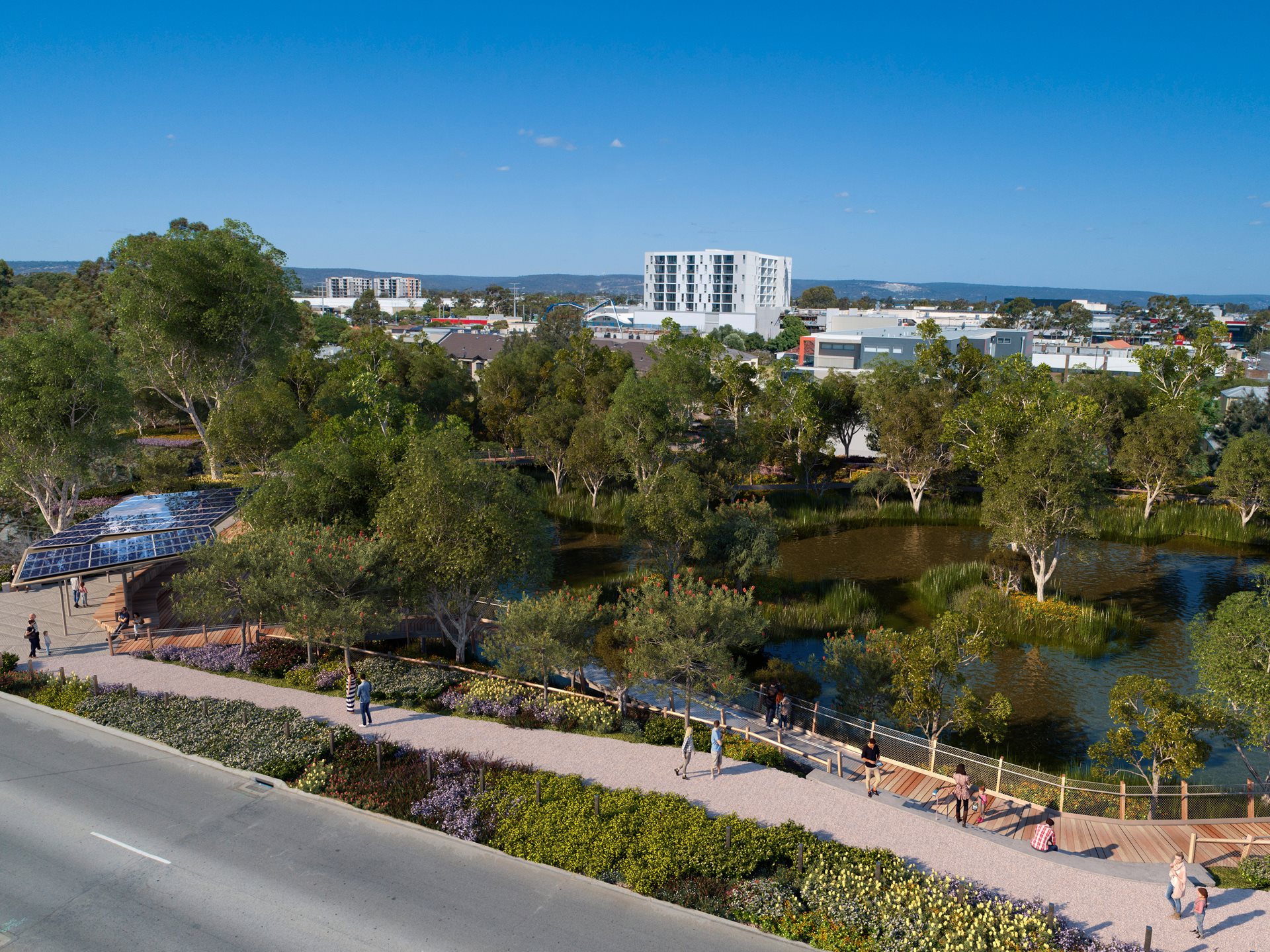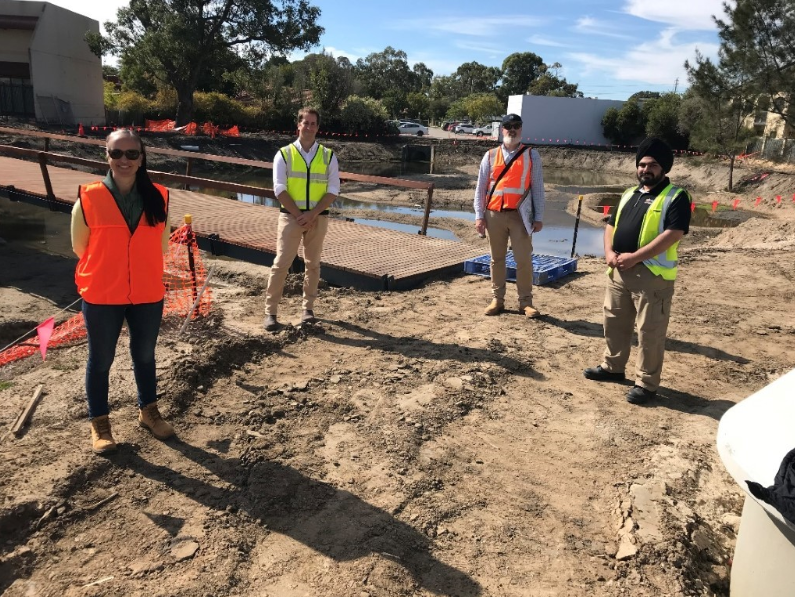WA smart park on track to open, despite COVID-19
In yet another example of our ‘new normal’ way of doing business, the Water Sensitive Transition Network recently held three small-group tours of the City of Canning’s Wharf Street Basin Next Generation Community Park.
Participants saw the works on-ground that are helping to transform Perth into a water sensitive city through the highly innovative smart park project. They brought their own high-vis vests to the small site tours and maintained physical distancing, to meet COVID-19 restrictions.
The park, which is on track to open in July 2020, is converting the stormwater basin into a new multifunctional, public, smart park, uniting nature and technology. It is being developed under the Drainage for Liveability program, a collaboration between WA Water Corporation and the Department of Water and Environmental Regulation.

When complete, the smart park will feature a community wetland and park, and will extensively integrate smart technology for greater resource efficiency and community wellbeing. It will be a place to relax, a habitat for wildlife, and an education space where visitors can learn more about water.
The high-tech inclusions will also allow the City of Canning to extract important data for maintaining bins and park lighting, timing irrigation to when the park trees need watering, and managing stormwater and public safety.
The park will have:
- an informal, interactive education space known as the Living Lab, which will also monitor water levels in real time
- free high speed public wi-fi
- sensors measuring water quality, weather, power and water use (with public access to the data)
- green space, featuring native plants and trees
- solar power for powering the facilities and charging devices
- a boardwalk and bridge to walk on and enjoy the natural environment
- sensor lighting
- a functioning stormwater basin
- public art
- CCTV to help protect the assets on site
- smart bins that tell the City when they need to be emptied
- smart locks activated and controlled by a smartphone or keypad
- custom app to help visitors experience the park
- smart irrigation to carefully control watering of vegetation onsite and help reduce water usage.
CRCWSC WA Regional Manager, Emma Yuen, took part in one of the recent small site tours.
‘As a water geek I’ve always found water sensitive developments exciting and fun, and this park makes water engaging and accessible to the broader community by adding gaming elements to environmental education. Visitors will be able to connect their device to microscopes to look at macroinvertebrates in the water, or see monitored changes in water quality reflected by a specially-lit bridge’, Emma said.
The $3 million project is being funded by the Australian Government's Smart Cities and Suburbs Program, Water Corporation, the Department of Water, Environment and Regulation, and the City of Canning, and has brought together researchers, engineers, and government agencies. Additional partners Curtin University, Innovation Central, and the Department of Biodiversity, Conservation and Attractions are also helping to deliver the vision, along with consultancy Urbaqua and landscape architects Josh Byrne and Associates.
